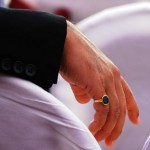A little while ago, Libby Anne wrote a great post called Sex Abuse, the First Stone, Judge Not, and All That. It’s about the ways that some evangelical Christians have responded to accusations against the late Tom White, former president of Voice of the Martyrs who killed himself while being investigated for child molestation. In short, White’s followers have recruited a set of Biblical aphorisms intended to make “fallen” religious leaders invulnerable to criticism. Anyone who so much as informs other people that there is a suspicion against a prominent religious figure is lambasted for “rejoicing in iniquity” and threatened with reminders that they should “judge not lest they be judged.” One wonders where all their “grace” is when the victim (oh, excuse me, the “accuser”) needs protection. The same dynamic occurred in the Tina Anderson case, in which a church deacon raped a 15 year old girl and made her “confess” to her “sin” of unwed pregnancy before the congregation. The moral of the story? In a church like this, the ones who get punished are the ones who lack the power to hide the results of others’ abuse.
It’s not just evangelical Christians who do this. I recently ran across this article involving ultra-Orthodox Jews who shun members of their community when they expose evidence of child abuse. The Catholic Church, too, is complicit in this kind of thing. In the much higher profile case of multiple priests’ molestation of young boys and the job transfers used to cover up the priests’ guilt, what mattered most again was preventing scandal, not preventing abuse or providing support for survivors. The Amish, too, are implicated, both in America and Bolivia (and probably other places, too).
What’s going on here?
I don’t argue that any of these groups actually considers child abuse a small concern. I’d be hard pressed to find anyone human who thinks that it’s no big deal. So why do so many communities conspire to cover it up? I think that it’s because child abuse is such a serious crime that religious groups (and families) often suppress the truth: the seriousness of the crime tends to inspire denial, defensiveness and panic.
An accusation of child abuse can immediately destroy a social group. Let’s consider a church as an example: If the perpetrator is high enough in authority, he has likely cultivated a relationship of trust with his congregation over many years. His office itself is, by default, given a sort of immunity from suspicion. He is the person closest to God. When he is exposed as a child abuser, the trust that bound together the congregation is shattered and the group immediately feels a lack of leadership. Because of the depth of their prior trust, congregants easily slip into denial and decide that he must have been falsely accused. (The same thing happens during murder investigations when the family members of the guilty party assert that their relative could not have possibly done it.) The victim, then, falls under suspicion because the group has less to lose if her credibility is questioned.
There’s another part to it: group representation. The archetypal story of a child abuse victim is that one parent tried to cover for the other parent or gaslighted the child to convince him or her that it wasn’t really abuse. Others are told that they’re at fault or urged not to speak to anyone about it outside the family. Indeed, when I told an elderly relative who was pressuring me to “forgive and forget whatever I had against my father” that he was verbally and physically abusive, she pretended not to receive my letter on three separate occasions. I assume – though she has never bothered to speak to me about it again – that she believes abuse shouldn’t be spoken of outside of the nuclear family. I gave up trying to get her to understand me; she wasn’t interested in understanding, she just wanted me to repair the family image.
Fear that news of abuse will reflect badly on a group extends beyond family units, too. It’s true of churches, denominations, ethnicities, nations – basically anyone who claims an exclusive identity. Which pretty much means all people. It’s not an unfounded fear, either. The Catholic Church’s reputation took a serious beating over the abuse of young boys over the past few years. Sexual offenses are usually the ones most hyped when a cultic group is exposed in the mainstream media. (See, for example, Warren Jeffs.) This doesn’t make covering up such acts defensible in the slightest, but the psychology is easy to understand.
The issue of representation goes beyond simply preserving a church’s reputation or acting as a “good witness” for one’s family or faith. It also concerns the attitude of the group toward the outside world. Legitimately or illegitimately, many such groups fear persecution. Evangelical Christians are supposed to show perpetual joy to the outside world; to do less is to spoil the “witness” and draw negative attention. Even ex-members are threatened for speaking out against abuses they faced. A perfect example of this is Joseph Branham’s defensive tirade against “Mike,” the ex-Message witness on WHAS11 News. Another is Michael Pearl “laughing” at his accusers when survivors began to speak out against his abusive child discipline program. In a future post, I’ll explore the dynamic as it pertains to minority religions and foreign policy.
I don’t pretend to know how to solve all of these problems, but I do think it’s important to be both sensitive and decisive in responding to matters of inequality and abuse whether one is in or outside of a particular community. When a group shuns a victimized member to protect the group identity, it ultimately reflects more poorly on the group than responding to it promptly would have done. Shunning is actually a valuable practice: we shun convicted sex offenders to protect children. Shunning also shows us our collective values: we shun child molesters because we declare child molestation a heinous crime. When a group, such as Tina Anderson’s church, shuns the victim instead, it reveals that the group’s values privilege appearances over integrity, a spotless reputation over a child’s soul. Indeed, part of the problem the “SlutWalk” movement is intended to fix is the way that our culture values the reputation of rapists over justice for rape victims. People of integrity ought to privilege justice over their chosen group identity. Setting aside fears of corruption to properly educate children about their own bodies is also an important part of prevention.
That said, I think there’s also a real religious dilemma underlying the “hush-hush” mentality surrounding abuse, at least in Christian congregations. Jesus’ admonishments to forgive, plus verses that instruct the reader not to expose other people’s sins but to confess their own, make it very hard to choose in situations where forgiving one person means condemning another. Sexual abuse is one of those areas: either you protect the victim or you cover for the abuser. “Keep it in the family” logic is siding with the abuser, telling the victim that he or she ought to be ashamed for something out of their control. Sexual abuse is an area in which it is not possible to remain impartial and apply some universal principle (like forgiveness) unilaterally. Dealing with sexual abuse requires making a choice. Sometimes choosing not to “cast the first stone” at the abuser means dropping a boulder on his victims.
















